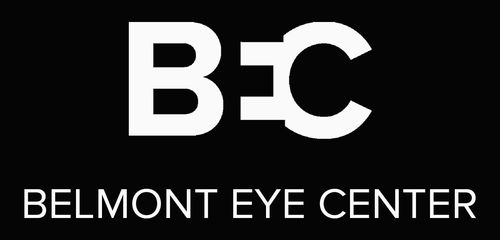As the winter season blankets our landscapes in its serene white, it’s not just nature that undergoes a transformation; our vision adapts in fascinating ways too. At Belmont Eye Center, where we’re dedicated to advancing eye care and vision health, we find the adaptability of vision in different species, including humans, utterly captivating. Just like reindeer have evolved to have night-vision-like capabilities in winter, human eyes also possess unique features to cope with varying light conditions.
Seasonal Changes in Vision: A Closer Look
It’s well-documented that animals, like reindeer, experience a change in eye color to adapt to winter environments. This change enhances their ability to see ultraviolet light, crucial for their survival. But what about humans? At Belmont Eye Center, we’re intrigued by how our eyes respond to the seasonal shifts, particularly the low light conditions of winter.
Human Eyes: Adapting to Winter Light
While humans don’t experience a dramatic color change in their eyes, our vision does adjust to different light conditions. In winter, with shorter days and often overcast skies, our pupils dilate more frequently to allow in as much light as possible. This adaptation helps us see better in lower light but can also make our eyes more sensitive to bright light, such as the glare from snow.
Protecting Your Eyes in Winter
At Belmont Eye Center, we emphasize the importance of protecting your eyes during winter. Just as reindeer have evolved to cope with UV light, we need to take steps to protect our eyes from the harsh reflections off snow and ice. Wearing sunglasses with UV protection is crucial, even on cloudy days, as UV rays can penetrate clouds and reflect off snow.
The Magic of Low Light Vision
Our ability to see in low light is something we often take for granted. In winter, when daylight is scarce, our eyes work harder to discern objects in dim conditions. This is where the magic of the human eye truly shines. The rod cells in our eyes, responsible for low light vision, become more active, allowing us to navigate through darker environments.
Belmont Eye Center: Your Partner in Eye Health
At Belmont Eye Center, we’re not just fascinated by the science of vision; we’re committed to helping you maintain optimal eye health. Winter brings unique challenges for eye care, from dry indoor air affecting eye moisture to increased exposure to UV rays. Our team of experts is here to provide comprehensive care and advice, ensuring your eyes remain healthy and comfortable throughout the season.
Conclusion: Embracing Winter’s Visual Wonders
As we marvel at the adaptability of animals like reindeer in winter, let’s also appreciate the remarkable capabilities of our own vision. At Belmont Eye Center, we encourage you to embrace the winter season with its unique visual experiences while taking care of your precious eyes. Remember, whether it’s adapting to low light conditions or protecting against UV exposure, your eyes are incredible organs capable of amazing adaptations.
Contact Us
For more information on how to care for your eyes this winter or to schedule an appointment, call us at (212) 486-2020">(212) 486-2020 . Let’s keep your vision clear and healthy, no matter the season!
